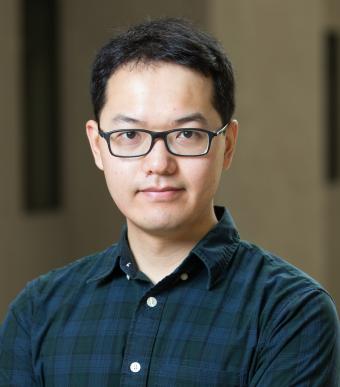Dr. Jeff Dong
Assistant Professor, University of Saskatchewan
Dr. Jeff Dong, Assistant Professor, University of Saskatchewan
Dr. Jeff Dong is an Assistant Professor in the Department of Biochemistry, Microbiology & Immunology at the University of Saskatchewan. Dr. Dong received a doctorate from the University of British Columbia, where he studied the regulation of lung macrophages during health and disease. For postdoctoral studies, he joined the laboratory of Dr. Wee Yong, who is a world-renowned neuroimmunologist working to understand and to treat the pathology of multiple sclerosis (MS) at the University of Calgary. During his postdoctoral work, Dr. Dong focused on uncovering new mechanisms of neuroinflammation and neurodegeneration relevant to MS. His research identified that oxidized phosphatidylcholines (OxPC), by-products of oxidative stress found in MS lesions, are potent molecular mediators of neurotoxicity. He also found while microglia, immune cells in the central nervous system (CNS), normally help to protect the tissue from OxPC damage, aging impairs the protective functions of these immune cells in the CNS and worsens neurodegeneration. As an independent researcher, Dr. Dong will continue to investigate the mechanisms of MS pathology and progression. His lab will aim to understand the role of OxPC during MS progression and to identify aging-associated molecular mechanisms that increase the vulnerability of the CNS to neurodegeneration.
Learn more about Dr. Dong
What is the focus of your research? How did you become interested in MS research?
As a neuroimmunologist, my research mainly focuses on how microglia, which are the major type of immune cells in the central nervous system, respond to molecules that mediate damage and injury during MS. Since microglia closely regulate the health of the central nervous system, understanding their roles in MS will help us develop ways to enhance their protective functions and promote repair in MS. Compared to other chronic neurodegenerative diseases which mostly affect elderly individuals, MS is fascinating because it is often diagnosed in young adults. And although we have identified multiple risk factors that contribute to its development, the definitive cause(s) of MS and factors that drive MS progression remain unclear. As a curious researcher, the unsolved mysterious of MS motivated me to investigate this disease during my postdoctoral research in the lab of Dr. Wee Yong. Then as I learned more about the pathology of MS and more importantly the daily challenges that individuals with progressive MS face over their entire lives, I recognized the urgent need to develop effective treatments for progressive MS. Thus, I am committed to dedicate my research program towards the ultimate goal of a world free of MS.
What inspires you to continue advancing research in this field?
Through MS Canada, I am inspired by the strong sense of community and mutual support between researchers, people living with MS, and caregivers. It is a privilege and I feel especially rewarded to be part of the collective effort towards improving the lives of many Canadians and people around the world.
How do you hope to change the lives of people living with MS through your research?
The ultimate goal of my research is to understand what drives tissue damage in MS and to develop effective therapies to stop or reverse MS progression. In addition, through MS Canada and other public forums, we will disseminate the results of our research to the community and communicate new discoveries that could improve the lives of people living with MS.
What do you enjoy most about your research? What are some of the challenges you face?
There are many aspects of research that I enjoy including the sense of discovery, the mentorship of future generation, the community engagement, and most importantly the opportunity to make tangible life improvements to all individuals living with MS. Making meaningful advances in research requires significant amounts of resource, time, and intellectual commitment. A key factor limiting scientific advancement in Canada is the paucity of resources that support cutting-edge and fundamental research operations. As an early career scientist, I found it unexpectedly challenging to balance the amount of time that I can use to conduct research in the lab versus the time spent seeking and managing resources that are needed for lab operations.
How important is the support from MS Canada in your research?
I am extremely thankful for MS Canada and the MS community for making so many essential contributions to support our research. The opportunities for trainee development and regular interactions with people living with MS are also important and invigorates our research program.
